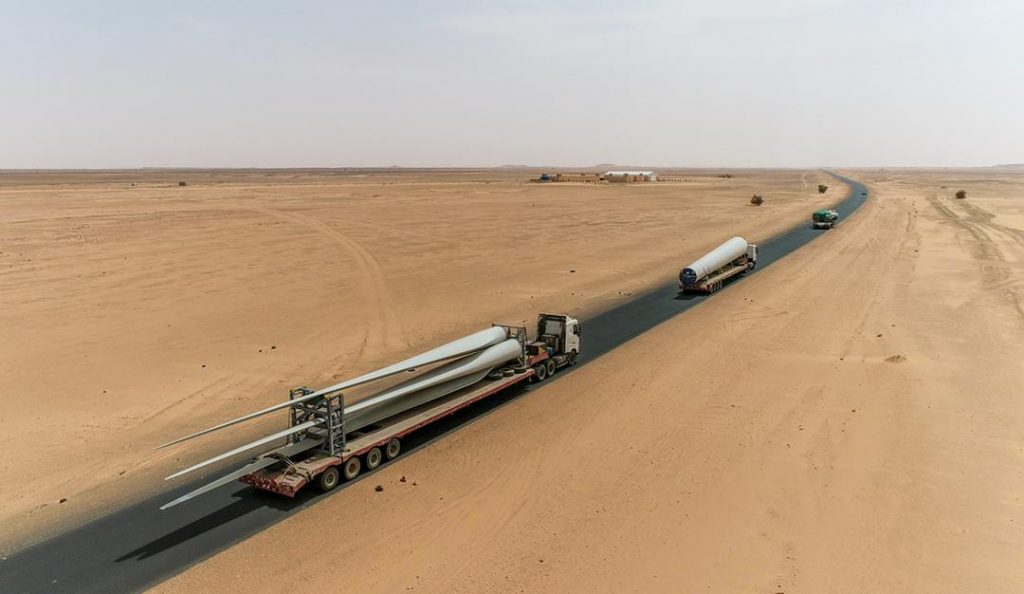
14 June 2021, KHARTOUM: A 63m-tall wind turbine has crossed Sudan’s Northern State, marking the inaugural milestone towards the country’s first commercial-scale wind-energy plant. Construction will begin shortly and is estimated to take two to three weeks.
Funded by the Government of Sudan and the Global Environment Facility (GEF), with support from UNDP, the turbine will demonstrate the viability of utility-scale wind energy in Africa’s third largest nation, and is expected to provide power to 14,000 people, connecting to the national grid.

The project will be used as a showcase for future windfarms across Sudan, in support of the Government’s efforts to attract renewable energy investment. It aims to capitalize on the nation’s significant wind-energy potential to improve access to energy, diversify Sudan’s power sources, and reduce reliance on fossil fuels.
“The arrival of our first wind turbine marks the first step in Sudan’s wind power journey and continues the significant advances in renewable energy we have made over the past decade,” said Yasir Abdalla Saied, Director General, Directorate of Renewable Energy, Ministry of Energy and Petroleum.
During the journey via Port Sudan to the windfarm site in Dongola, Northern State, the Netherlands-made turbine crossed 4,600 km and took seven vehicles to transport, finishing a 19-day journey from the Netherlands to Port Sudan.
“60% of Sudan’s population lack regular access to energy,” says UNDP’s Resident Representative Yuri Afanasiev. “This exciting update is progress towards new solutions that help move the dial on access to affordable energy, improving health, education, the lives of women, and economic opportunities. Having supported Sudan with training, policy advice and research in this field for some time, the turbine’s arrival is a symbolic milestone we are thrilled to see.”
The turbine will also provide training and opportunities to equip engineers with skills to support future wind projects.
UNDP’s support for this initiative is part of its efforts to increase access to renewable energy in Sudan, creating opportunities for employment, improved basic services, and strengthening resilience to climate change.




